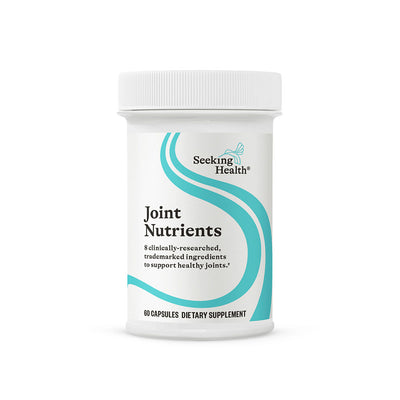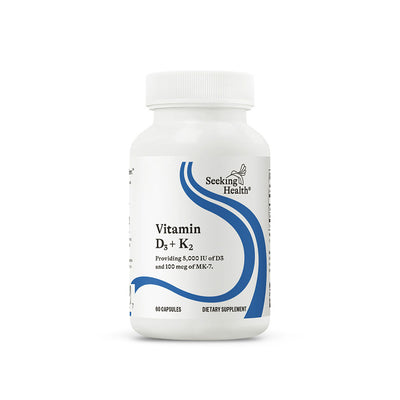TL;DR: Juicing can provide vitamins and minerals that support gut health, but it removes fiber and can be high in sugar. While juices like green juice, apple juice, and aloe vera juice can benefit digestion, juicing alone won't heal your gut. A balanced diet with whole foods, fiber, hydration, and healthy habits is essential for maintaining gut health. Juicing can be a part of a healthy routine, but it's not a cure-all.
Are you curious whether juicing is good or bad for your gut health? Juicing has become very popular for those looking to improve their diet and well-being. Some believe juicing can offer many health benefits, like providing essential vitamins and minerals in a quick, easy-to-drink form. It can also be a tasty way to get more fruits and vegetables into your daily routine because, let's face it, we can all use a little help!
But is juicing really as healthy as it sounds?
Like anything, there are good and bad sides to consider. For instance, while juicing is delicious and seems super nutritious, it removes essential fiber in whole fruits and vegetables, which is crucial for healthy digestion. Plus, drinking too much juice can lead to consuming a lot of sugar, which isn't good for your gut or overall health.
Before you invest in the fancy juicer that’s trending on Amazon, read more about juicing to see if it's the right choice for you and your gut.
What Are the Health Benefits of Juicing?
Juicing can be very good for your health because it helps you get a lot of vitamins and minerals in one drink, which supports a healthy gut microbiome.(1) When you juice fruits and vegetables, you can easily consume more than you might eat in a meal. This means you can get more nutrients without feeling too full. Juicing can also help your body absorb nutrients faster because the liquid is easier to digest than whole foods. Fruit juice, in particular, is an excellent source of polyphenols, natural substances found in plants that support healthy detoxification processes and microbiota health.(2) Drinking juice can also keep you hydrated and support a healthy energy level to keep you going throughout a busy day.
Overall, the health benefits of juicing include:
✓ More Nutrients
You can get a high concentration of vitamins and minerals in just one glass. This means you can consume a lot more nutrients quickly and easily than you might be able to by eating whole fruits and vegetables.
✓ Easy Digestion
Juice is easier for your body to digest than whole fruits and vegetables. The juicing process breaks down the plant cells and removes the fiber, leaving just the liquid. Your body can absorb the nutrients from juice more quickly since it doesn’t have to work as hard to break down the food.
✓ Hydration
Drinking juice helps keep you hydrated, which is essential for overall health. Many fruits and vegetables, like cucumbers and watermelons, have high water content. Juicing them lets you easily drink this water and all those healthy nutrients.
✓ Energy Support
Juice supports healthy energy levels because it contains natural sugars that your body can use quickly. Unlike sugary snacks, the sugars in juice come with vitamins and minerals that support your overall health.
✓ Variety
Juicing allows you to easily consume a variety of fruits and vegetables. You can mix different fruits and vegetables and enjoy various flavors and nutrients in one drink. Embrace your creative side!
What Is the Downside of Juicing?
While juicing can be healthy, there are some downsides to consider:
🚫 Lack of Fiber
One significant downside of juicing is that it removes most of the fiber in whole fruits and vegetables. Fiber is essential for healthy digestion because it helps keep your digestive system moving and prevents constipation. Without fiber, you may miss out on these benefits and feel less full after drinking juice, which could lead to overeating later.
🚫 High Sugar Content
Juices, especially those made from fruits, can have a high sugar content. When you drink juice, you consume these natural sugars without the fiber that helps slow down their absorption. This can cause your blood sugar levels to bounce all over, making you feel tired and hungry—not to mention hangry!
🚫 Costly
Juicing can be expensive because it often requires a large amount of fruits and vegetables to produce a small amount. For example, you might need several oranges to make just one glass of orange juice! A juicer can also be expensive, though it's a one-and-done purchase.
🚫 Less Filling
Since juicing removes the fiber from fruits and vegetables, the resulting juice is less filling than eating the whole produce. Fiber helps you feel full and satisfied after eating, so without it, you might feel hungry again soon after drinking juice.
🚫 Missing Nutrients
While juice can be rich in vitamins and minerals, it might lack other vital nutrients in whole foods. For example, the skin and pulp of fruits and vegetables often contain additional nutrients that don't make it into the juice.
This doesn’t mean you can’t juice. It just means you have to do your research and talk with your healthcare practitioner to figure out which combination of fruits and vegetables will be best for you and your health goals. Remember, you juice to support a healthy diet and lifestyle, not replace them!
What Juices Are Good For Cleansing the Gut?

People often do a juice cleanse for gut health because certain juices are especially good at supporting a clean gut, the gut microbiome, and digestion:
Green Juice: Made from spinach, kale, cucumber, and celery.
Green juices are packed with vitamins, minerals, and antioxidants that support overall health and digestion. Spinach and kale are fiber-dense, which helps regulate digestion and promotes a healthy gut microbiome. Cucumber adds hydration and a refreshing taste, while celery is known for supporting healthy inflammatory responses.
Apple Juice: Contains pectin, which aids digestion.(3)
Apple juice contains pectin, a soluble fiber that offers prebiotic support. Prebiotics help feed the beneficial bacteria in your gut, promoting a balanced microbiome and supporting digestion. Apples also contain vitamins and antioxidants that contribute to overall health. It’s even better when it’s freshly pressed and still contains the pulp!
Lemon Juice: Supports a clean digestive system, healthy liver function, and potentially brain health, too!(4)
Lemon juice is known for its cleansing properties and can help support bile production in the liver, which aids digestion and detoxification. The citric acid in lemons may also support the breakdown of food and enhance nutrient absorption.
Ginger Juice: Supports healthy inflammatory responses and gut microbiota and soothes the stomach.(5)
Ginger has long been used for its anti-inflammatory and digestive properties. Ginger juice can help support healthy inflammatory responses in your gut, easing discomfort and promoting healthy digestion. It also supports the work of digestive enzymes and helps soothe an upset stomach or nausea. That’s why your mom may have given you ginger ale when you were a kid at home from school with a stomach bug!
What Juice is Best for Gut Health?

Aloe vera juice is often considered the best juice for gut health. It contains natural compounds that can support healthy inflammatory responses in your digestive system and a healthy gut lining. Overall, regularly drinking aloe vera juice supports your digestive tract to keep things moving smoothly.(6)
Can Juicing Heal Your Gut?
Juicing can help support gut health, but it’s not enough to heal your gut on its own. Drinking juices made from fruits and vegetables can give your body important vitamins and minerals that support digestive system health. However, it's also important to eat whole foods that contain fiber, which is crucial for good digestion. Juicing can be part of a nutritious diet and works best when combined with other healthy habits.
What Else Can You Do To Support Gut Health?

Other healthy habits that support your gut health include:
- Eating whole foods, Including fruits, vegetables, and grains with fiber.
- Maintaining a balanced diet with a variety of foods to get all the necessary nutrients.
- Eliminating processed and sugary foods to support healthy energy, blood sugar levels, and heart health.
- Staying hydrated by drinking plenty of water along with juice.
- Exercising regularly because physical activity supports your gut microbiome and overall digestive health and keeps things flowing!(7)
- Remembering your mental health and engaging in mood-balancing activities like yoga, meditation, and mindfulness. Your gut-brain axis needs to be nurtured for healthy digestion, too!
- Getting healthy sleep helps keep your gut healthy by supporting good bacteria and digestive processes.(8)
- Quitting smoking and excessive alcohol intake which is just the right thing to do for gut health and your health in general, period!
Where Can You Find Good Juice Recipes For Gut Health?

After you talk with your healthcare practitioner about your specific nutritional needs, you can find good juice recipes for gut health in many places, such as online websites, health magazines, and even books about juicing. Look for recipes that include fruits and vegetables that are good for digestion, like the ones you read about earlier. Some health food stores also offer recipe cards or books specifically focused on juicing for gut health. Social media platforms like Pinterest often have communities or pages dedicated to sharing healthy recipes, including juices. Experimenting with different combinations of fruits and vegetables can help you find delicious juices that support your digestive system and overall wellness.
Seeking Health® Gut Health Support Supplements
Treat your body better with Seeking Health®! We’ve developed our line of gut health support supplements to complement juicing and a healthy diet and support your digestive tract. Our supplements support a holistic approach to gut health, including sleep, exercise, hydration, and nutrition, to promote a healthy gut and digestive tract.†
- Optimal Electrolyte is a great-tasting way to ensure you get the hydration and nutrients your body craves to support muscle and heart health and relaxation.†
- Gut Nutrients offers a comprehensive, nutrient-dense blend of herbs and nutrients that synergistically support healthy digestion, GI barrier, and immune system function.†
- ProBiota HistaminX is a histamine-friendly probiotic formulated without the probiotic strains known to produce high levels of histamine while still supporting microbiome balance and immune system health.†
- Digestive Enzymes contain vegetarian digestive enzymes that support nutrient digestion, absorption, and comfort after eating. Like a good chewable, try Digestive Enzymes Chewable!†
The Bottom Line

Incorporating juice into your diet can offer numerous benefits for gut health, particularly when paired with a balanced diet and healthy lifestyle. Green juices, apple juice, lemon juice, ginger juice, and aloe vera juice are all excellent choices for supporting digestion and promoting a healthy gut microbiome.
However, it's important to remember that juicing alone is not a cure-all. You need whole foods rich in fiber, hydration, exercise, and a balanced diet to support gut health. By combining these healthy habits with the benefits of juicing, you can treat your gut health with the tender, loving care it deserves!
References:
- https://pubmed.ncbi.nlm.nih.gov/28526852/
- https://pubmed.ncbi.nlm.nih.gov/34071760/
- https://pubmed.ncbi.nlm.nih.gov/36500984/
- https://pubmed.ncbi.nlm.nih.gov/33679318/
- https://pubmed.ncbi.nlm.nih.gov/38316805/
- https://pubmed.ncbi.nlm.nih.gov/36552686/
- https://pubmed.ncbi.nlm.nih.gov/38952907/
- https://pubmed.ncbi.nlm.nih.gov/35032622/
† These statements have not been evaluated by the Food and Drug Administration (FDA). This product is not intended to diagnose, treat, cure, or prevent any disease.












